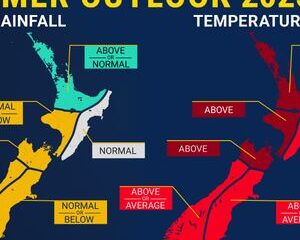Business
KiwiSaver Changes Set to Save Government $2.467 Billion

Changes to the KiwiSaver scheme are anticipated to save the New Zealand government a total of $2.467 billion over a four-year span. Announced during the recent budget presentation, these significant adjustments include a reduction in the Government’s contribution from 50 cents to 25 cents for every dollar contributed, while also lowering the maximum payment to $260.72.
The adjustments took effect on July 1 and include a measure that automatically exempts individuals earning over $180,000 per year from receiving any Government contribution. Notably, the changes now allow contributions from those aged 16 and 17. According to Treasury, the estimated savings will be realized from the 2024/25 financial year through to the 2028/29 financial year.
A spokesperson for Minister of Finance Nicola Willis clarified that the projected $2.467 billion savings are solely related to the alterations in Government contributions. While acknowledging the reduction in contributions, the spokesperson emphasized that both employer and employee contributions are expected to increase.
“The overall impact of that is expected to be higher savings for everyday KiwiSaver investors,” the spokesperson stated. “The Government also extended the KiwiSaver annual government contribution (and employer matching) to 16 and 17-year-olds in the workforce, encouraging a life-long savings habit to secure Kiwi futures.”
Looking ahead, the default KiwiSaver contribution rate is slated to rise from 3% to 3.5% on April 1, 2026, for both individuals and employers, with a further increase to 4% scheduled for April 1, 2028. The savings outlined in Budget 2025 are earmarked for economic growth initiatives, including investments in health infrastructure like the Dunedin and Nelson Hospitals, educational support, law enforcement, and social services.
At the announcement of the KiwiSaver changes, Willis highlighted the scheme’s role in enhancing financial security for future generations. “An increased contribution rate will also grow the funds available to young people for a first home deposit. Kiwis are able to withdraw from their KiwiSaver to purchase a first home, and larger fund balances can only help,” she remarked during the Budget 2025 release.
The changes have not been without controversy. The Labour Party criticized the budget on its announcement day, accusing the Government of “raiding” retirement savings. Recently released Treasury documents reveal that ministers had received advice suggesting the elimination of the Government’s annual contribution to KiwiSaver. Officials warned that such a move would negatively affect KiwiSaver balances.
KiwiSaver continues to be a contentious issue in New Zealand politics. The New Zealand First party has indicated plans to campaign for compulsory contributions to increase to 10%, proposing that this be offset by corresponding tax cuts. This announcement was made during the party’s conference in Palmerston North in September.
As these changes unfold, the future of KiwiSaver and its impact on New Zealanders’ financial security remains a critical topic for discussion among policymakers and the public alike.
-

 World1 week ago
World1 week agoPrivate Funeral Held for Dean Field and His Three Children
-

 Top Stories2 weeks ago
Top Stories2 weeks agoFuneral Planned for Field Siblings After Tragic House Fire
-

 Sports3 months ago
Sports3 months agoNetball New Zealand Stands Down Dame Noeline Taurua for Series
-

 Entertainment3 months ago
Entertainment3 months agoTributes Pour In for Lachlan Rofe, Reality Star, Dead at 47
-

 Entertainment2 months ago
Entertainment2 months agoNew ‘Maverick’ Chaser Joins Beat the Chasers Season Finale
-

 Sports3 months ago
Sports3 months agoSilver Ferns Legend Laura Langman Criticizes Team’s Attitude
-

 Sports1 month ago
Sports1 month agoEli Katoa Rushed to Hospital After Sideline Incident During Match
-

 World2 weeks ago
World2 weeks agoInvestigation Underway in Tragic Sanson House Fire Involving Family
-

 Politics2 months ago
Politics2 months agoNetball NZ Calls for Respect Amid Dame Taurua’s Standoff
-

 Top Stories2 weeks ago
Top Stories2 weeks agoShock and Grief Follow Tragic Family Deaths in New Zealand
-

 Entertainment3 months ago
Entertainment3 months agoKhloe Kardashian Embraces Innovative Stem Cell Therapy in Mexico
-

 World4 months ago
World4 months agoPolice Arrest Multiple Individuals During Funeral for Zain Taikato-Fox



















